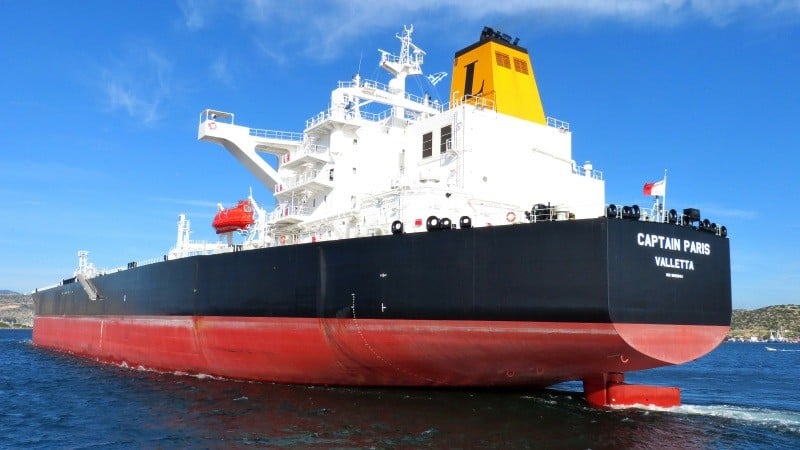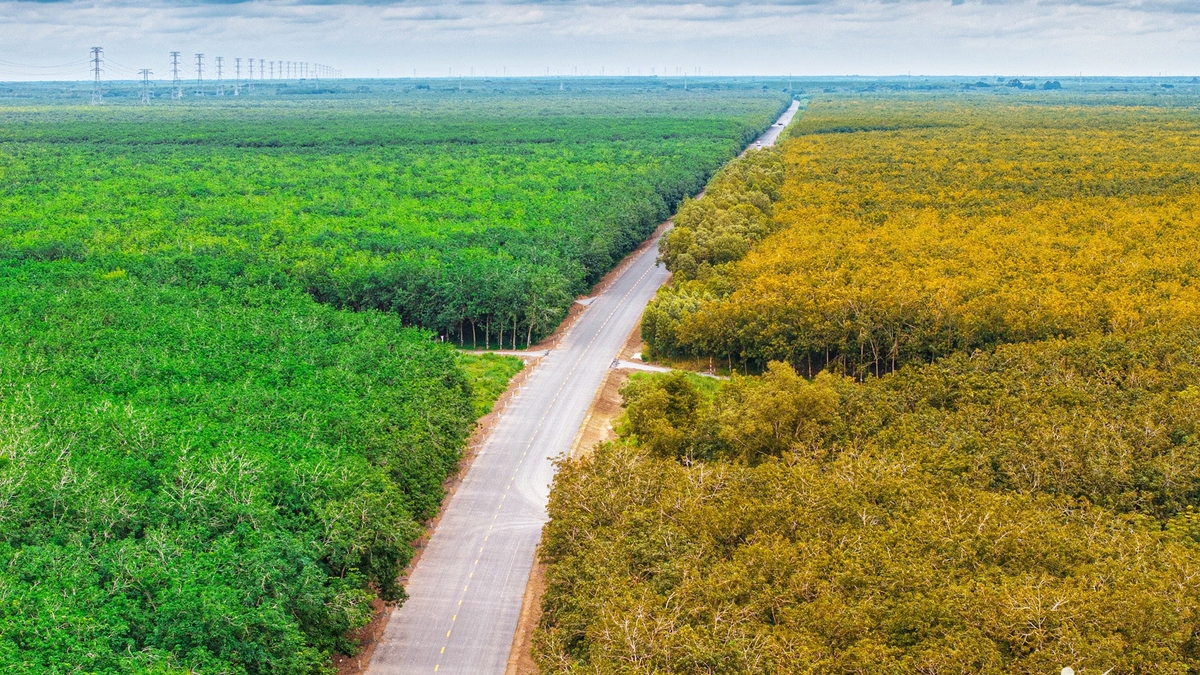 |
| The many paths of Russian oil - how did diesel take a detour, avoiding Western sanctions? In the photo: Captain Paris ship. (Source: Maritimeoptima) |
The Captain Paris, a Greek-owned ship that had just shipped 730,000 barrels of diesel from Russia, arrived in the Suez Canal. The crew was familiar with the route they normally take to transport oil from the Gulf or India to Europe or Africa.
However, this time the ship is heading in a different direction in a new plan, which is to unload its cargo in the United Arab Emirates (UAE).
Rerouting the oil path
In February 2023, when the EU banned refined oil imports from Russia, many suspected the country could divert its huge diesel exports, which amounted to 950,000 barrels a day last year and account for the bulk of Russia’s $65 billion in petroleum product sales.
At the end of last year, when the EU was still buying two-thirds of Russia’s exports, China and India quickly stepped in as substitutes for the European boycott of Russian crude oil. They appeared unconcerned by the EU ban.
The rest of the market is fragmented. But, as the adventure of the Captain Paris suggests, trade routes have been rerouted. New buyers have emerged – and new ways of making money, by exploiting the sanctions themselves.
A look at aggregate trade figures would suggest that the European ban was never imposed. In March 2023, Russian diesel exports hit a record 1.3 million barrels a day. While that figure has fallen below 900,000 barrels a day since May, it remains on par with recent years, and the drop is largely the result of seasonal refinery maintenance.
The countries that facilitated such a feat fall into two camps. First are those that buy more diesel from Russia at a discount to replace supplies from elsewhere. They include South American countries, led by Brazil. Although Brazil bought nothing from Russia in January 2023, it received 152,000 barrels a day in June, equivalent to 60% of its total diesel imports.
North African countries such as Algeria, Egypt and Morocco have also benefited. In recent months, Russia has even exported refined oil to North Korea, marking the first such shipment since 2020.
The second group includes countries that have become “greedy” for “cheap” Russian oil products. Chief among them is Türkiye. Ankara is now buying twice as much diesel from Russia as it did in January, but its exports are growing even faster. While Türkiye is unlikely to re-export much under a new brand, it may instead be using its proximity to Europe to “triangulate” Russian flows, using cheap imports to meet domestic demand while selling its more expensive product to the EU.
Gulf states are making a similar deal. Saudi Arabia has not imported diesel from Russia for years, but since April its purchases have exceeded 150,000 barrels a day.
It’s not unusual for Saudi Arabia’s imports to rise ahead of the summer, when electricity demand for cooling soars. But this year, its diesel exports have risen at the same time—about 120,000 barrels a day more in April through June than in recent years. Much of that is going to Europe, and increasingly to Asia.
"Gift" from the West
This booming trade means that – in addition to new customers – Russia’s export machine has enough ships to serve them. “Clean” products like diesel cannot be shipped on conventional tankers, where crude or heavier products could contaminate them. The path of the small global fleet of diesel tankers may have been “stretched” as Russian barrels began to make longer journeys.
February’s European sanctions threaten to make things look worse. Europe prohibits shippers, traders and insurers from facilitating Russian sales unless the oil is sold below the Group of Seven (G7) price of $100 a barrel for premium products. The compliance headaches, combined with the publicity risks of dealing with Russia, have kept many Western companies on the sidelines.
Not all European companies are on the sidelines, however. Swiss giants Gunvor and Vitol still ranked among the top ten buyers of Russian oil products in the first four months of the year, according to the report, which cited customs data, with both companies saying they complied with relevant regulations.
The rest are made up of “commercial weapons” from Russian energy companies and their partners in Hong Kong (China), Singapore or the UAE. They seem to have no shortage of barges to carry the oil. Meanwhile, many innovative techniques have also been used.
Ship-to-ship transfers involving Russian cargoes, particularly near Greece and Malta, have surged since last year, suggesting attempts to circumvent the restrictions. The EU acknowledged this on June 21, when it said it would ban tankers suspected of smuggling from its ports.
In recent years, Russian exports have accounted for about 15% of global diesel trade. Its resilience in the face of sanctions is likely to lead to a supply glut for the rest of this year.
Prices surged in 2022 as the risk of disruption coincided with a post-pandemic recovery in demand. But the supply shocks are now dissipating, as Gulf states add refining capacity and slowing economic growth dampens Western consumption. The cost of a barge of diesel delivered to Rotterdam has fallen by a quarter in a year. Refining margins are a third of what they once were.
This would hurt ailing European and wealthy Asian refineries, which have already been pushed out of the market by cheap products.
At best, they could cut refinery runs; at worst, they would have to cut capacity. For crude oil, Western sanctions have suddenly made it easy money for those who don't comply.
Source






































































































Comment (0)